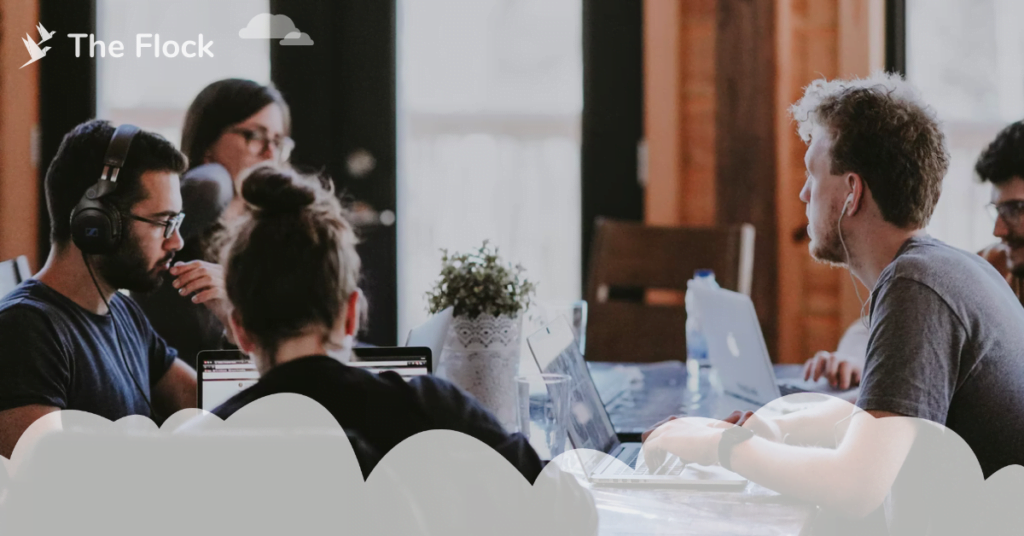
The financial technology (FinTech) landscape is in the midst of a rapid evolution, and at the forefront of this revolution is the emergence of generative AI as a powerful catalyst for innovation. In this exploration, we unveil five revolutionary applications of generative AI in FinTech, shedding light on its profound impact on reshaping the entire industry.
1. Amplifying Security with Advanced Risk and Fraud Detection
In financial systems, generative AI assumes a pivotal role in fortifying security measures. Through meticulous analysis of vast datasets, it identifies intricate patterns and anomalies, providing a robust defense against fraudulent activities. As the FinTech industry embraces digital transformation, this technology becomes the linchpin for the rapid and secure adoption of groundbreaking financial technologies.
Unlocking the future of financial security, generative AI is redefining how we safeguard our digital assets.
2. Enhancing Decision-Making with Precision Data Accuracy
In the dynamic landscape of FinTech decision-making, precision is paramount. Generative AI steps in by seamlessly filling in missing data points and identifying outliers, ensuring accuracy in critical decision processes. Additionally, its role in maintaining data privacy through the creation of synthetic data sets safeguards the integrity of financial transactions.
In the world of FinTech, accuracy is not a luxury; it’s a necessity, and generative AI is leading the charge.
3. Navigating Compliance Waters with Ease
Navigating the complex seas of compliance and regulatory adherence is a daunting task, but generative AI simplifies this journey. By meticulously analyzing regulatory requirements and providing transparency, it becomes a trusted ally for companies seeking to avoid fines and build unwavering trust with regulatory authorities and the public.
In the intricate dance of regulations, generative AI is the guiding partner, ensuring every step is compliant and transparent.
4. Revolutionizing Market Analysis and Asset Management
Generative AI’s prowess extends to the heart of financial strategy—market analysis and asset management. Armed with historical financial data, it unravels market trends, predicts asset prices, and simulates economic scenarios. This transformative tool empowers decision-makers with invaluable insights in navigating the dynamic currents of financial markets.
In the ever-shifting landscape of finance, generative AI is the compass, guiding decisions with foresight and precision.
5. Harnessing Neural Networks for Predictive Excellence
A subset of generative AI, neural networks, takes center stage in risk management and financial transactions. Whether assessing creditworthiness or engaging in algorithmic trading, these networks elevate prediction accuracy. This cutting-edge technology ensures informed decision-making, paving the way for a new era in FinTech functionality.
In the intricate dance of risk and reward, neural networks orchestrated by generative AI hold the key to financial excellence.
The Growing Imperative for Generative AI in FinTech
As the FinTech market expands, the imperative for technologies driving success becomes undeniable. Beyond the spotlight on its transformative applications, generative AI becomes a cornerstone for personalized financial advice, customer service automation, enhanced data augmentation, and seamless regulatory compliance.
In the tapestry of FinTech success, generative AI is not just a thread but a weaving loom.Unlock the power of generative AI in FinTech. From enhanced security to predictive insights, witness the revolution shaping a secure and efficient financial future.
Acknowledging and Mitigating Risks in Generative AI
While the benefits of generative AI are evident, a cautious approach is paramount. Inaccuracy, lack of transparency, privacy concerns, and copyright challenges underscore the risks. Human oversight is essential to navigate these challenges, ensuring the ethical and responsible use of this powerful technology.
In the dance between innovation and responsibility, human oversight is the guiding partner.
The Human Element: Ensuring Ethical and Inclusive FinTech Evolution
Generative AI, with its immense potential, requires vigilant human supervision. Ethical considerations and bias mitigation are crucial to building trust and ensuring equitable access to financial tools for all. The human touch remains indispensable in steering FinTech toward a future that is not only efficient and secure but also inclusive.
In the symphony of FinTech evolution, the human element is the conductor, ensuring harmony and fairness.
In this swiftly evolving FinTech landscape, generative AI stands as a dynamic force for positive change. By harnessing its transformative capabilities, addressing associated risks, and upholding ethical standards, FinTech companies can chart a course toward a more efficient, secure, and inclusive financial future.
We can help you accelerate your digital transformation and initiatives. Click here!
Access the world’s best jobs. Apply as Talent
Recommendation:
The Flock Recognized as a Top 5 IT Staff Augmentation Company in Latin America by Tech Times in 2023
Maximizing Your Project with .NET Development
Unlock innovation with exceptional Latin American software developers
Building a strong team: Effective practices for enhanced productivity and success














































